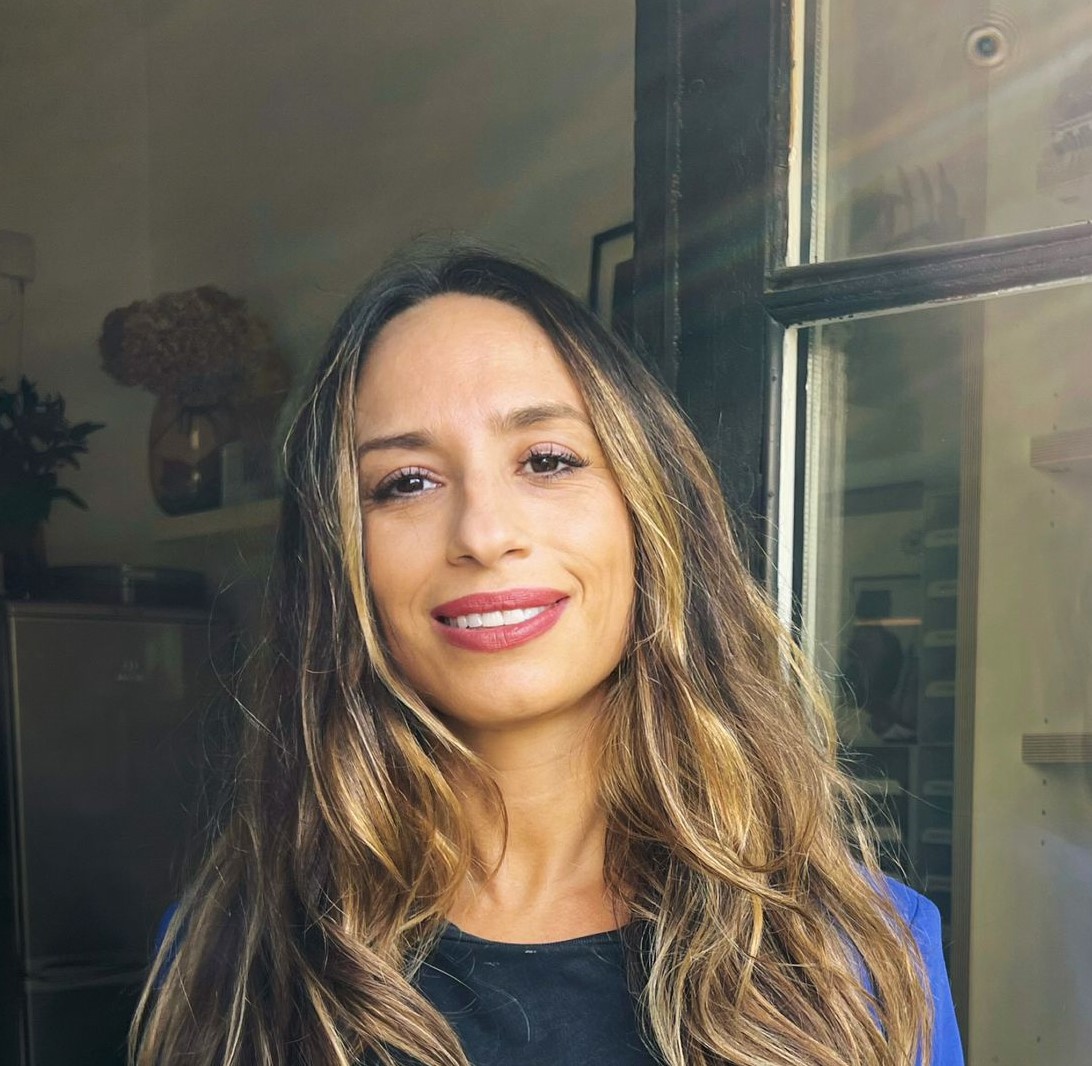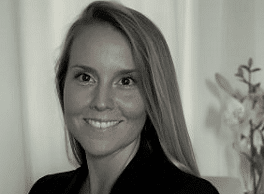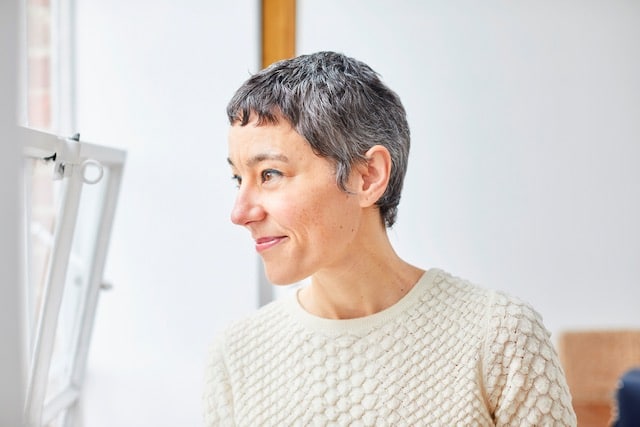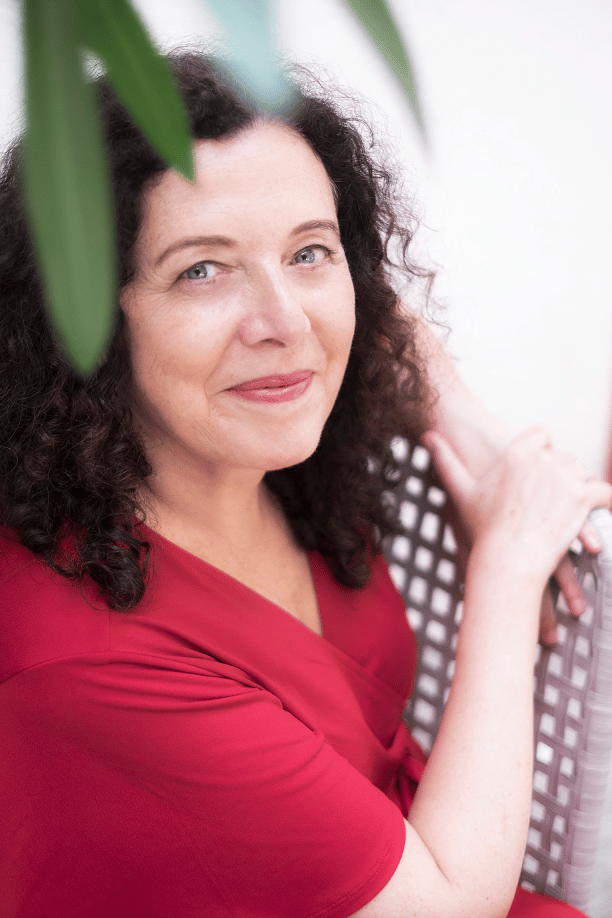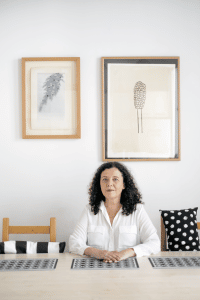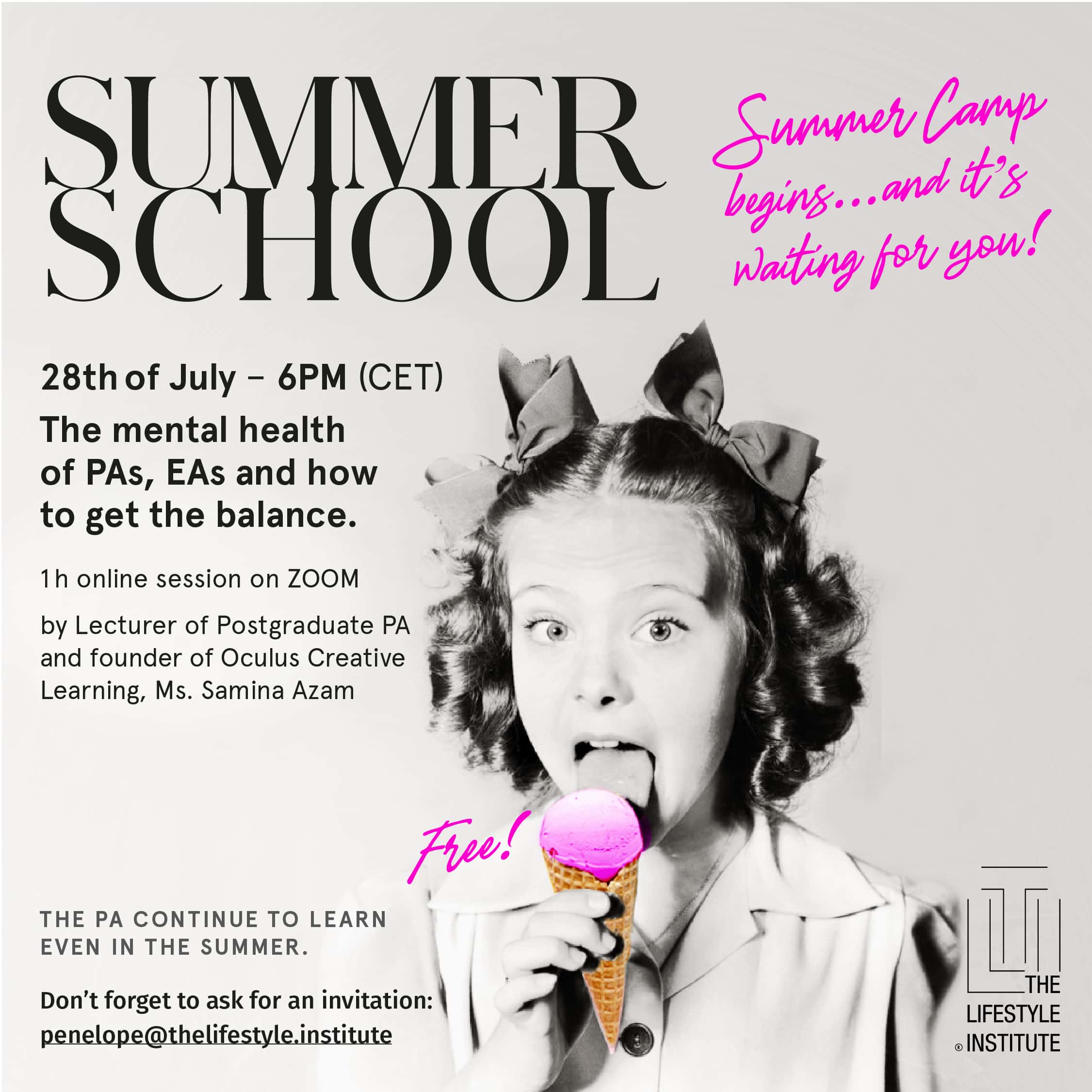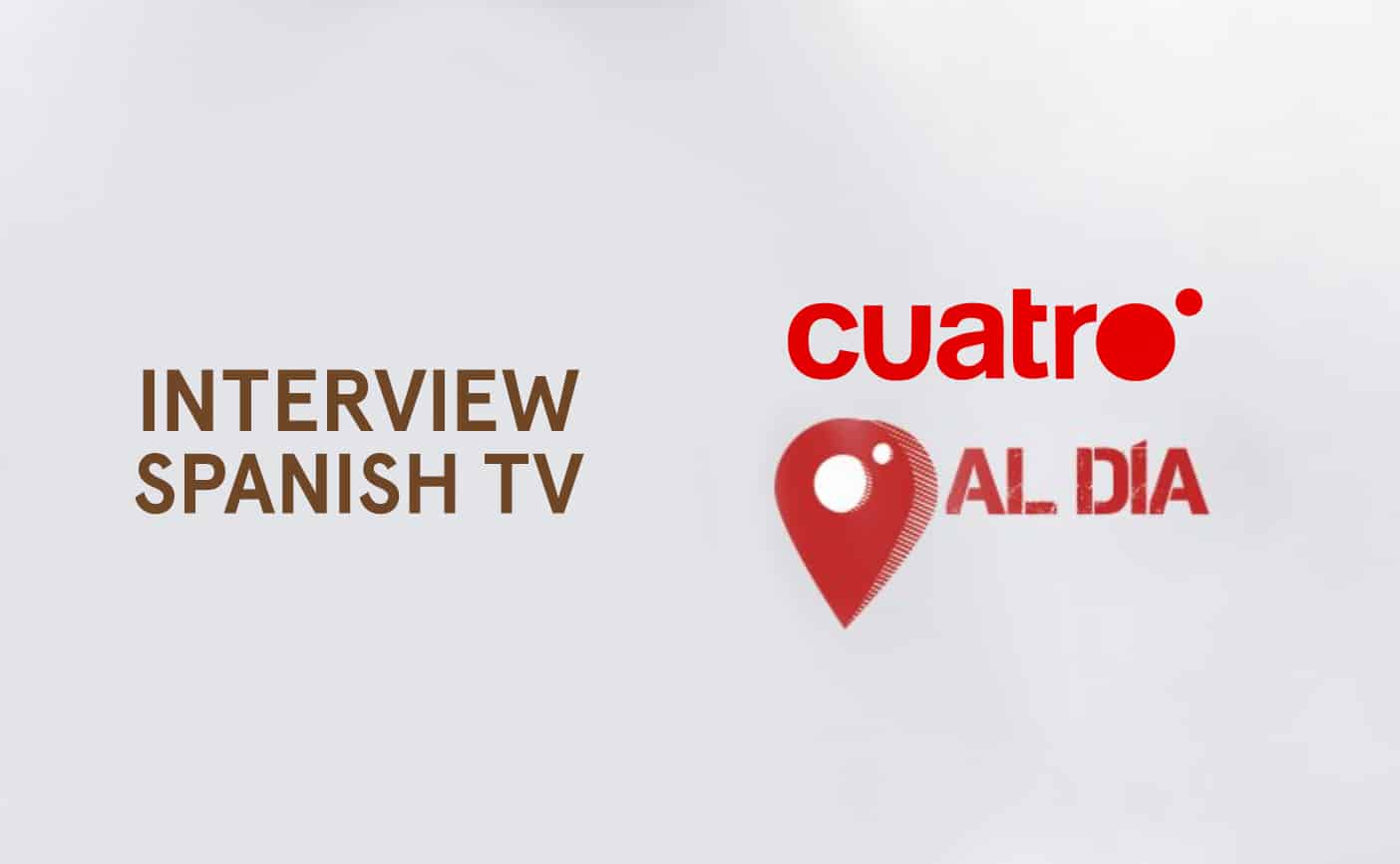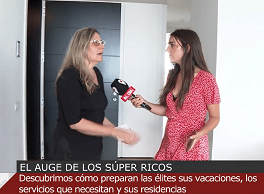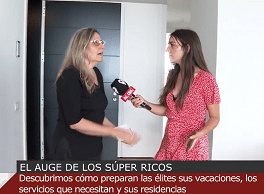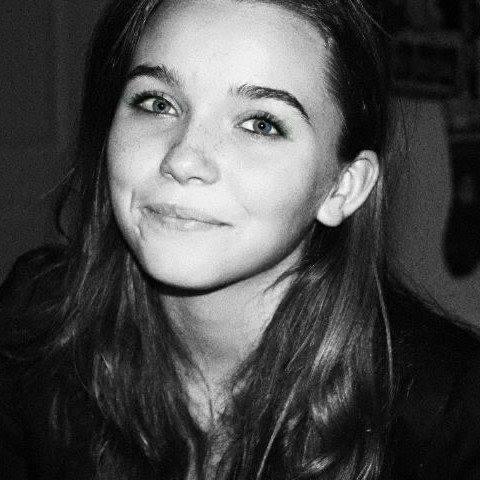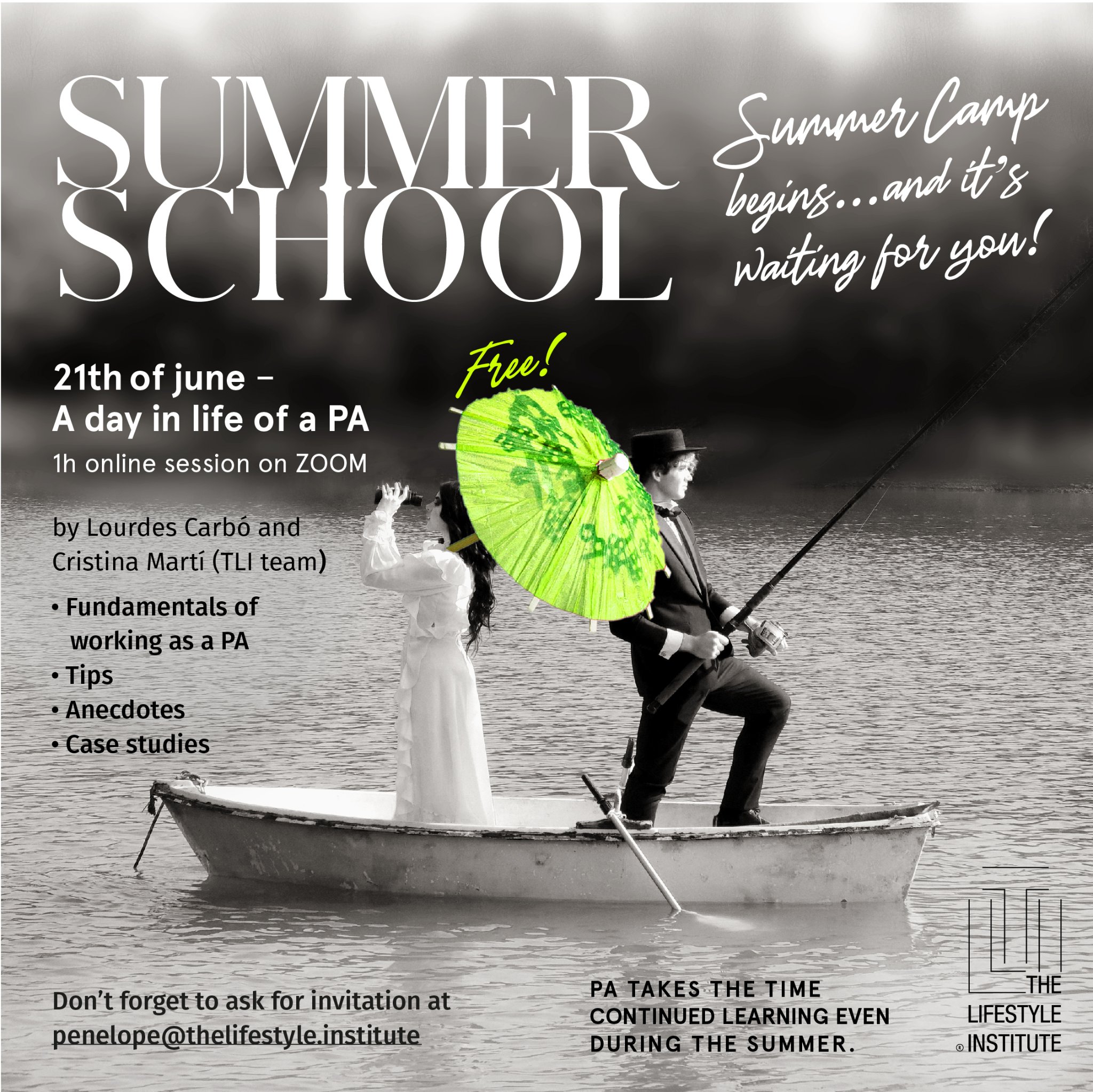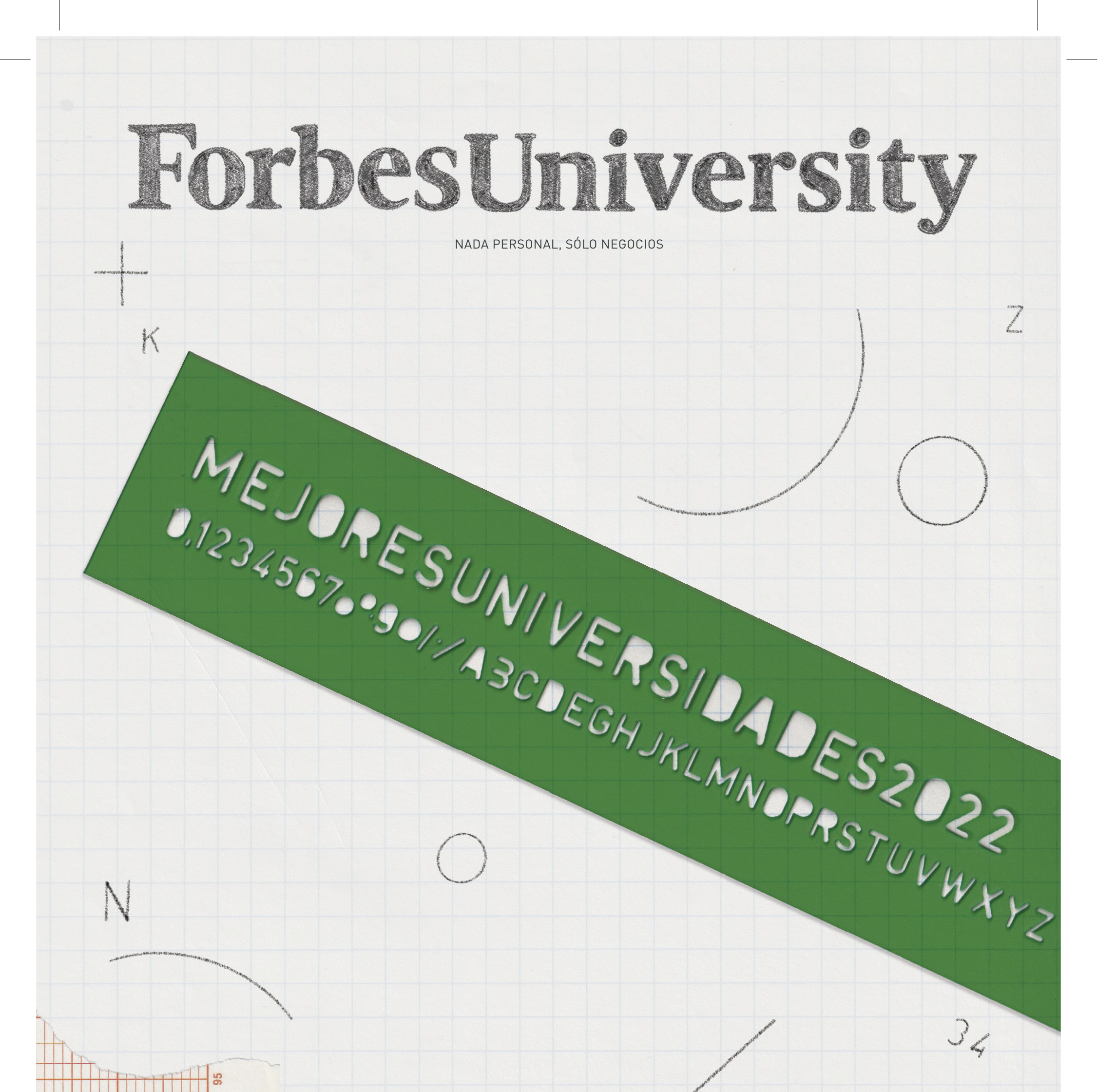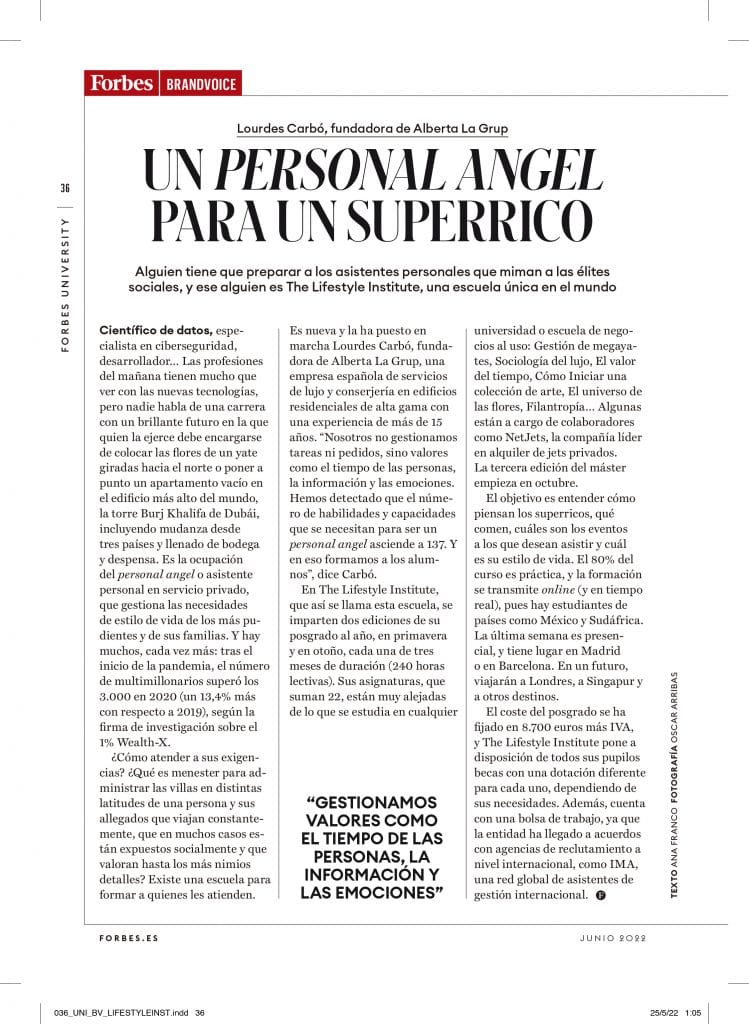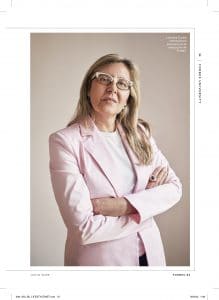Editorial The Lifestyle Institute | Author: María José Núñez | January 2023
“What didn’t I do before starting to work for Alberta…? That would be a better question. I’ve always considered myself to be an inquisitive, curious and active person, as well as needing to work to pay for my studies and my rent. For that reason my career has fluctuated between what I’m passionate about, or was passionate about, and what I needed to do in the moment. My professional journey that has brought me to where I am today started in the tourism sector: working as a hotel receptionist, a receptionist in beauty salons and wellness centres, being a hostess at VIP events, a Concierge in a 5* hotel and a VIP manager. All of this together is what brought me to Alberta…” This is what Cristina Martí, Personal Angel at Alberta La Grup and lecturer for the following subjects: A Day in a life of a PA, Key Experiences for the UHNWIs and The Art of Travelling at The Lifestyle Institute, has to say about her journey up to this point. Want to get to know her better? Don’t miss out on her interview!
(Sigue en español)
-How would you explain exactly what your job as a PA consists of?
We make life easier for the client. We take care of the many needs that this kind of client has. The complexity of their lives is considerable and, as PAs, we know and can see when there is a knot and know how to undo it in a calm and intelligent way so that everything happens in the smoothest way possible. In our day-to-day work, we have no idea what the client is going to ask of us. However, we plan ahead and have a profound understanding of their lives that makes our work possible. Managing, planning, organizing… trips, their personal live, their homes, their cars and other properties, doctor’s appointments, leisure, entertainment, what else? Anything that is legal and moral. We have everything to hand to avoid missing any details and to be as efficient as possible, to follow up and to continue and keep going until we manage to successfully achieve their request.
“PAs make life easier for the client (…) We know and can see when there is a knot and know how to undo it in a calm and intelligent way so that everything happens in the smoothest way possible”
– You teach subjects such as A Day in a life of a PA, Key Experiences for the UHNWIs and The Art of Travelling at The Lifestyle Institute. What do they consist of?
They are based on my own experience and cover the different things that I have faced – challenges, goals and more… I give tools to be able to organize, manage, plan and prioritize that have worked for me and that could be valid for others too. Obviously, there is not only one, fixed way. Each and every student and future PA will design and create their own way of working. I also really enjoy what I refer to as ‘deconstructing my day’ where I do an x-ray of a normal day in the life of a PA. The most consistent, reflexive and open part for the student is the presentation involving real cases. I choose several cases to present in these classes and afterwards, the students comment and share their thoughts. They are not theoretical classes as such, but rather interactive classes meant to awaken the PA within.
-What are the key things that you want to put across to your students?
One of the most relevant things is to discover what has brought them to the Postgraduate course. To know what they already know, which resources they are familiar with and which may be missing and should be explored. Also, to make sure they understand that it is a profession of the future, and that it isn’t for everyone – it requires passion. It is also necessary to understand the profile of the clients, which is something that we do alongside other subjects. I want to help them work autonomously and give tips, strategies and tools to do so, as well as emphasising personal care, both in body and mind… To sum up: on an individual level, I aim for every student to find their personal strengths, resources and values that can be applied to the profession, as well as the challenges and objectives that they connect with being a PA. All of this, without forgetting the magic of having a balanced and active lifestyle.
-Could you sum up for is what daily life is like for a PA?
There is a start and end of the day that is totally personal. I like to give tips and suggestions to future PAs about how to keep a balance. During working hours, you first need to look back on yesterday and close or continue with any requests that already exist. For example, seeing what will be happening today (if the client needs my assistance, if I need to send them a reminder, what I could propose to make their day easier…) This includes communicating with the client, checking their agenda (past, present and future) and the suppliers, given that many times we can’t close requests because we depend on a supplier. We also need to contact the house staff to make sure everything is fine, check if they need anything, etc. Ideally, we end the day with the most important and urgent things checked off the list. If not, we reschedule them for the next. It’s important to make sure there are no gaps…
-What basic knowledge and understanding should a PA have?
English and another language (essential), an advanced level of general culture, know-how, be level-headed and know how to manage emotions, emotional intelligence (basically to avoid a conflict of egos and not take things personally). They should also have general information about documentation and paperwork, the basic things required to organize a trip, bureaucratic appointments, appointments to renew personal documents… It’s impossible to name of all them! All of them can be learnt in their daily work. As long as they have strength, self-confidence and enthusiasm, that’s the basics covered. Then, day-by-day and challenge-by-challenge.
– Tell us something about this III Edition of the Postgraduate Course. Are there any interesting updates or objectives?
We start all of the editions with the same level of enthusiasm and commitment to the students. This year, for example, there are more study cases in my subjects. Apart from giving and sharing essential knowledge and theory, the best thing is to create conversation and discussion about real cases and bring different points of view and possibilities within the same situation to the table. I also love to create a space in which students feel comfortable to share and express their doubts and concerns. Aldous Huxley said that experience wasn’t something that happened to you, but rather what you do with what happens to you. So my opinion is that the best way to learn is through reflexion, lived experience, etc. The acquisition of that knowledge comes from both my experience and that of the students themselves.
“A client asked us for a mermaid to swim in their pool and surprise their daughter… Everything that has come from this request is incredible!”
– Do you have any curiosities or anecdotes of things that have happened at work and/or in the classes?
We could write a lot of anecdotes. They happen every day! I will choose one that we are working on at the moment… A client has requested a mermaid to swim in their pool and surprise their daughter… Everything that has come from this request is incredible! Another that I remember fondly is that a client once sent an ‘urgent’ message to send the baby’s pram to the hotel where they were spending their family holidays. When I went to their house and sent a photo to confirm it was the right one, the parents told me that it wasn’t – the pram they were requesting was their daughter’s toy one.
Translation: Emily Benton
Copyright ©by Alberta La Grup
If you wish to re-print this article or photos, that’s fine. Just include the biography at the end of the article. Thank you!
“La profesión de Personal Angel requiere de pasión”
Editorial The Lifestyle Institute | Autora: María José Núñez | Enero 2023
“Qué no he hecho antes de llegar a Alberta… podría ser una de las cuestiones. Siempre me he considerado una persona inquieta, curiosa y activa a lo que añado el hecho de tener que trabajar para pagar estudios y alojamiento. Es por eso que mi trayectoria ha fluctuado entre lo que me apasiona o apasionaba y lo que tocaba hacer. La trayectoria profesional que me ha conducido hasta donde estoy empezó en el sector turístico: trabajos como recepcionista de hotel, recepcionista de salones de belleza y Wellnes, azafata en eventos “vip”, Concierge en hoteles 5* y Vip Manager. La suma de esto y aquello me llevó a Alberta…” Así nos habla Cristina Martí, Personal Angel en Alberta La Grup y lecturer de las asignaturas: A Day in a life of a PA, Key Experiences for the UHNWIs and The Art of Traveling en el Postgrado de The Lifestyle Institute, de su trayectoria profesional hasta llegar aquí. ¿Quieres conocerla mejor? ¡No te pierdas esta entrevista que le hicimos!
-En el Postgrado de TLI impartes las asignaturas de Un día en la vida de un PA, Experiencias clave para los UHNWIs y el Arte de Viajar. ¿En qué consisten?
Se basan en mi propia experiencia. En aquello a lo que he tenido que hacer frente, desafíos, retos y más… Doy herramientas de organización, gestión, planificación, priorización que a mi me han funcionado y que se pueden extender como válidas. Obviamente, no existe un modelo único e inamovible. Cada estudiante y futur@ PA diseñará y creará su propio modo de trabajar. Además, disfruto mucho desde lo que yo llamo “deconstruyendo mi día”, donde hago una radiografía de un día ‘normal’ en la vida de un@ PA. La parte más consistente, reflexiva y de apertura para el estudiante viene de la presentación de casos reales. Elijo varios casos que presento en las clases y que los estudiantes deberán comentar y dar su aportación. No son clases teóricas en sí; son clases de alta participación para despertar el PA que llevan dentro.
-¿Cuáles son las claves que deseas trasladar a tus alumnos?
Una de las más relevantes es descubrir qué les ha llevado a este Posgrado. Saber qué tienen ya dentro, qué recursos reconocen, qué otros les faltan y deben explorar. Entender que se trata de una profesión de futuro (ya es un hecho) y que no es para tod@s pues requiere de pasión. Se necesita también entender el perfil de este cliente, cosa que hacemos conjuntamente con otras asignaturas. Saber que el cliente está en nuestro mismo nivel, que l@s PA tienen una vida plena. Deseo fomentar la autonomía en el trabajo, dando tips, herramientas y estrategias, dar peso al cuidado personal, cuerpo y mente… En resumen: a nivel individual, procuro que cada estudiante identifique sus propias fortalezas, recursos y valores aplicables a la profesión, así como los retos y objetivos que les conectan con ser PA. Todo ello sin olvidar lo mágico de tener una vida activa y equilibrada.
-¿Podrías resumirnos brevemente cómo es un día en la vida de un PA?
Hay un inicio y un fin del día que es totalmente personal. Me gusta dar tips y sugerencias que puedan acercar a l@s futur@s PA a mantener el equilibrio. A partir de ahí, dentro de las horas laborales, se basa en poner una mirada en el ‘ayer’, para cerrar o seguir con peticiones ya existentes. Por ejemplo, en ver qué ocurre hoy (si el cliente necesita mi asistencia, si tengo que recordarle algo, qué puedo proponer, hacer para que su día sea más fácil…) Esto incluye la comunicación con el cliente, revisar agenda (pasado, presente y futuro) y los proveedores, ya que muchas veces no podemos cerrar la petición pues dependemos del proveedor; y contactar con el staff de las casas para saber si todo está bien, si necesitan algo, etcétera. Idealmente, cerramos el día con lo más importante y urgente con un ‘check’. Si no, reprogramamos para el próximo día. Que no queden fisuras…
-¿Qué conocimientos principales y básicos ha de tener un PA?
Inglés y otro idioma (esencial), cultura general en grado avanzado, saber estar, templanza y gestión de las emociones & inteligencia emocional (básicamente para no entrar en conflicto de egos, es decir, no tomarse las cosas de manera personal). También tener información general sobre documentación/trámites básicos para organizar viajes, citas burocráticas, renovación de documentos personales… ¡Es imposible determinar! Y en el día a día, de todo se aprende. Salir con solidez, autoconfianza e ilusión es básico. Día a día, reto a reto.
-¿Cómo está siendo la III edición del Postgrado de TLI? Novedades interesantes y objetivos a conseguir.
Cada vez iniciamos las ediciones con igual nivel de entusiasmo y compromiso con los estudiantes. Este año, por ejemplo, hay más casos de estudio en mi temario. Aparte de dar y compartir conocimientos esenciales y teóricos, la máxima es crear conversación y discusión sobre casos reales, aportar diferentes puntos de vista y posibilidades ante una misma situación. Además, me encanta crear ese espacio para que puedan expresar y compartir sus dudas e inquietudes. Aldous Huxley decía que la experiencia no es lo que te sucede, sino qué haces con lo que te sucede. Así pues, opino que la mejor forma de aprender es a través de la reflexión, vivencias, etcétera. Y la adquisición de estos conocimientos a partir mi experiencia y la de los propios estudiantes.
“Una cliente nos ha pedido una sirenita que nade en su piscina para sorprender a su hija…. ¡Todo lo que genera esta petición es increíble!”
-Curiosidades o anécdotas que hayan sucedido en tu trabajo y/o en las clases.
Podríamos escribir mucho sobre anécdotas. ¡Cada día suceden! Me quedo con una en la que estamos trabajando ahora mismo… Una cliente nos ha pedido una sirenita que nade en su piscina para sorprender a su hija…. ¡Todo lo que genera esta petición es increíble! Otra que recuerdo con cariño es la de recibir un mensaje ‘urgente’ pidiendo que enviara el carrito del bebé al hotel donde estaban pasando las vacaciones una familia. Al ir a su casa y tomar la foto del carrito para verificar, los papis me dijeron que no era ese. Lo que pedían era el carrito de juguete de la niña.
Copyright ©by Alberta La Grup
If you wish to re-print this article or photos, that’s fine. Just include the biography at the end of the article. Thank you!

